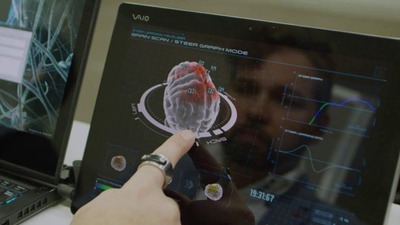Wake-up call: How better sleep can lead to safer roads
Unlocking the secrets with Dr. Matthew Walker and Nissan's Brain to Performance program
Why it matters:
- Drowsy driving contributes to around 100,000 crashes, 71,000 injuries, $12.5 million in damages annually in the U.S.1
- Renowned sleep scientist says regularity is the key to better sleep, higher driving performance.
- Improving drivers' cognitive performance is a top priority of Nissan's future research.
"Imagine this scenario," says Dr. Matthew Walker, a renowned sleep expert and professor of Neuroscience and Psychology at the University of California, Berkeley. "Two taxis show up. One driver has a 30-percent higher likelihood of getting into a crash due to being sleep deprived. Which would you choose?
"The answer is obvious, but that's the position we put ourselves in when we neglect our sleep," says Walker.
November 5-11 marked The National Sleep Foundation's Drowsy Driving Prevention Week®, encouraging a focus on getting the right amount of sleep before driving. To further the conversation, Nissan is working with Walker and Dr. Lucian Gheorghe, lead of the Nissan Brain to Performance program, to analyze drowsy driving and identify solutions for the future.
< Read more: Daniel Patrick launches NISMO-inspired sleepwear in collaboration with Nissan >
Risks on the road
The dangers of sleep deprivation are real: Around 100,000 crashes per year in the U.S. are reported to involve drowsy drivers, leading to an estimated 71,000 injuries and over $12.5 million in damages1.
To expand on his taxi metaphor, Walker referenced a AAA Foundation for Traffic Safety study, revealing a non-linear correlation between sleep hours and crash risk.
Compared to drivers who had slept for at least seven hours in the past 24 hours, drivers who reported they had slept:
- 6-7 hours had a 1.3-times greater crash rate
- 5-6 hours had a 1.9-times greater crash rate
- 4-5 hours had a 4.3-times greater crash rate
- Less than four hours had an 11.5-times greater crash rate2
And yet, the simplest solution is within everyone's grasp.
"Sleep is probably the greatest legal performance enhancer not enough people are using," said Walker.
Walker discusses the relationship between sleep and accident rates.
So, what can we do?
The average healthy adult should aim for seven to nine hours of sleep each night, according to Walker.
"If I was going to offer you one suggestion for improved sleep, it is regularity," he said. "By going to bed and waking up at the same time, you will anchor your sleep, and improve the quantity and the quality of that sleep."
Here are some other simple ways you can take action.
Walker explains why a cooler bedroom is key to a good night's rest.
Nissan's research into the brain and performance
Nissan's focus on improving driving performance extends to the driver's waking hours. Collaborating with the Nissan Formula E team and non-professional drivers, Nissan's Brain to Performance program aims to improve cognitive focus, reaction times and even decision-making abilities through targeted brain stimulation.
"If I can find a method to make very good drivers a tiny bit better, then I've got a good chance to help average drivers become better, too," said Gheorghe, Nissan's senior manager of User Experience Innovation.
The program has shown impressive results, with participants performing 50 percent faster and learning racing circuits 50 percent quicker than a control group.
"There's a clear analogy between muscle changes and brain structure changes," said Gheorghe. "Perform the same task time and again, and certain paths develop in our brains."
Gheorghe discusses the motivation behind his work.
Consistency is the key, resonating in both performance training during the day, and when the time to sleep arrives at night.
"Regularity will feed your brain those signals of consistency," said Walker, who has a passion for motorsports and has worked with racing professionals at the highest levels of competition. "The brain will respond by producing the greatest quantity and quality of sleep."
It should come as no surprise that those who took part in the Brain to Performance program also slept better.
And when they slept better? "They performed better, because they can concentrate for longer periods of time," said Gheorghe.
Walker shares how poor sleep can impact a driver's ability to make quick decisions on the track.
The bottom line
Improving drivers' cognitive performance is a top priority of Nissan's future research. Gheorghe envisions a future where Nissan dealerships offer brain-training programs, creating better drivers for safer roads.
"I wouldn't be surprised if in a few years, you come to the Nissan dealership to have your car checked, and instead of reading a magazine while you wait, you take part in a highly accelerated brain-training training program," Gheorghe said. "Then you go home with a better car, as a better driver, and you sleep better at night – all of which can combine to create safer roads for everyone."
In the meantime, the value of a good night's rest simply cannot be overstated.
"Sleep is not a cost," says Walker. "Sleep is an investment."
An investment that could prove crucial for safer roads and enhanced driving performance.
About Nissan USA Stories
The Nissan USA Stories page explores the best of Nissan's people, products, technology and more. New to the page? Subscribe here to receive alerts when a new story is published.
# # #




